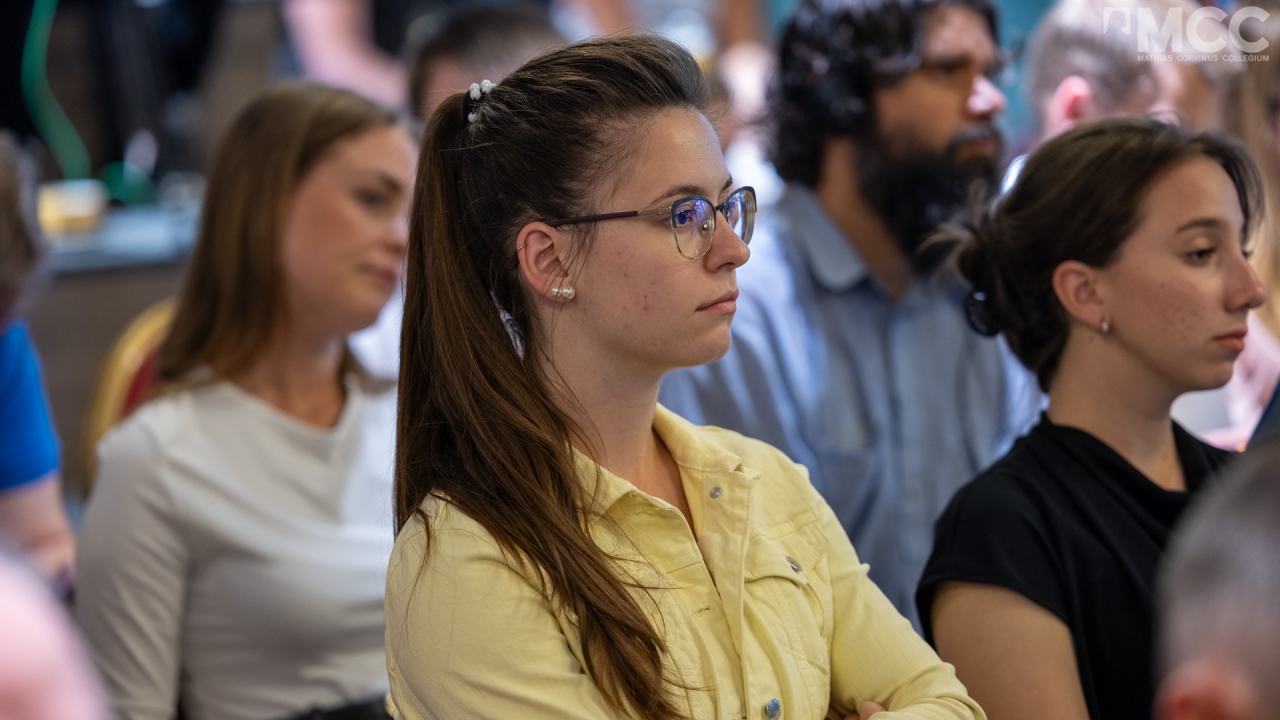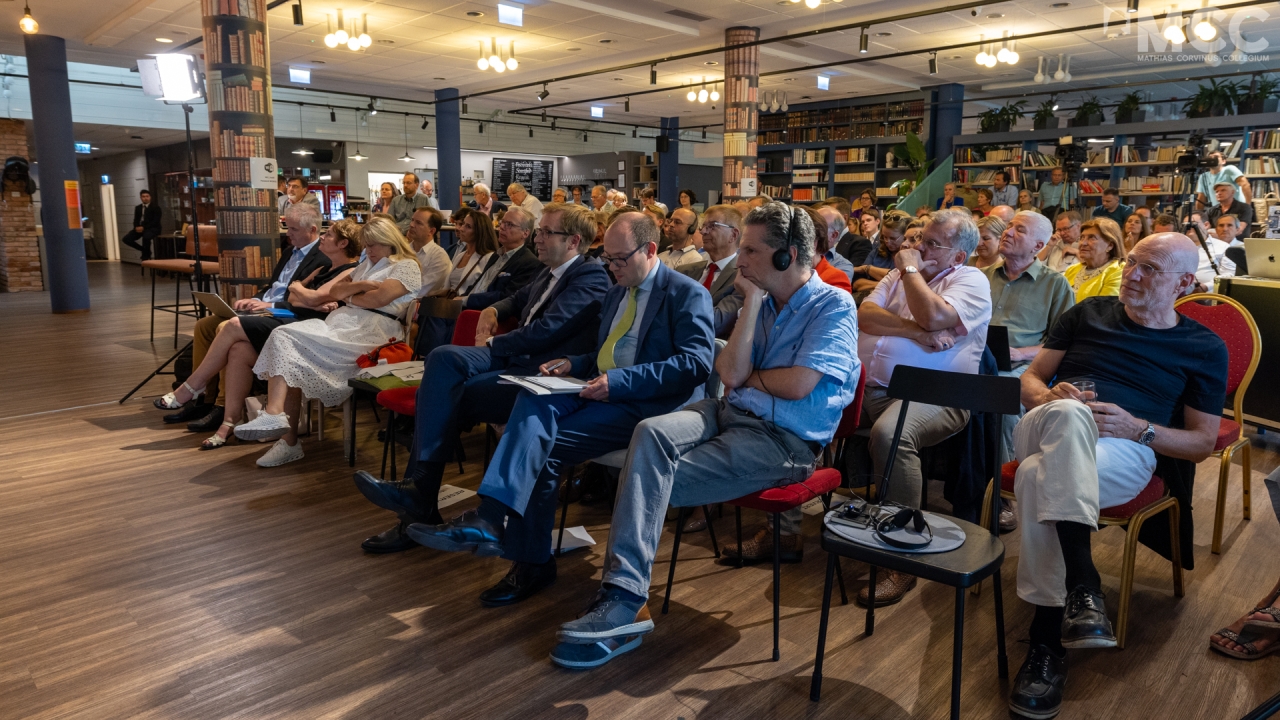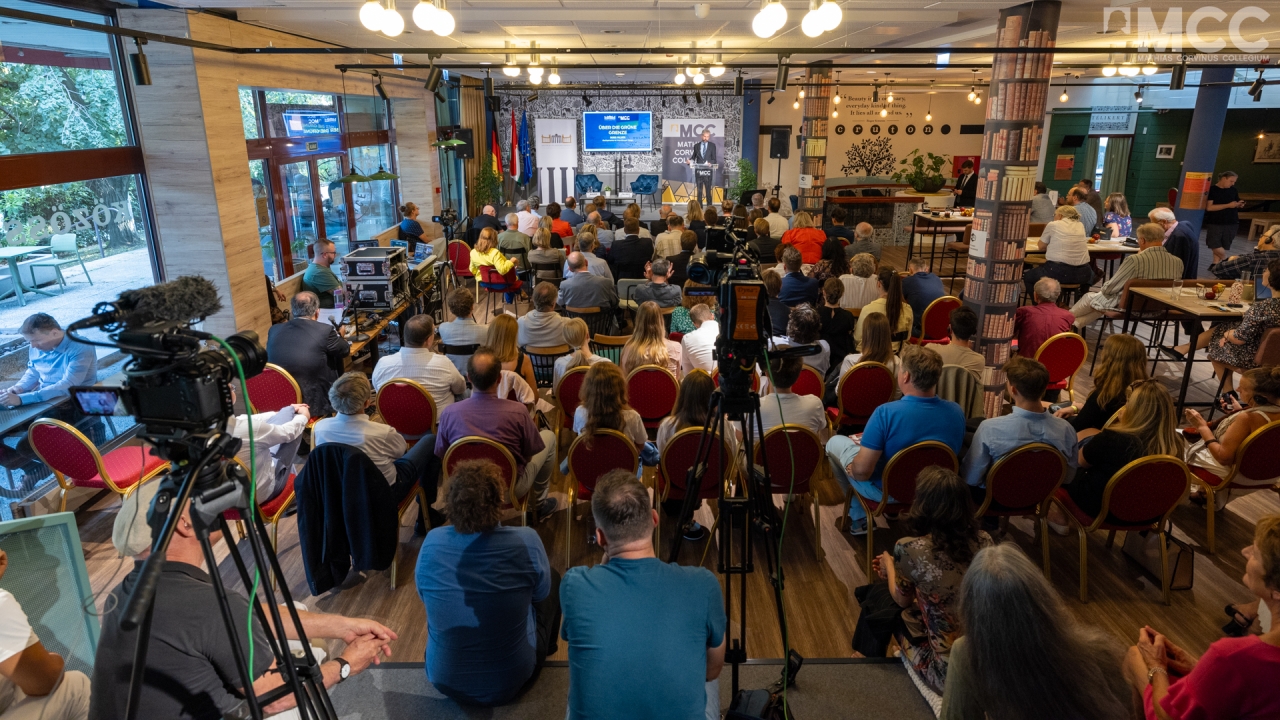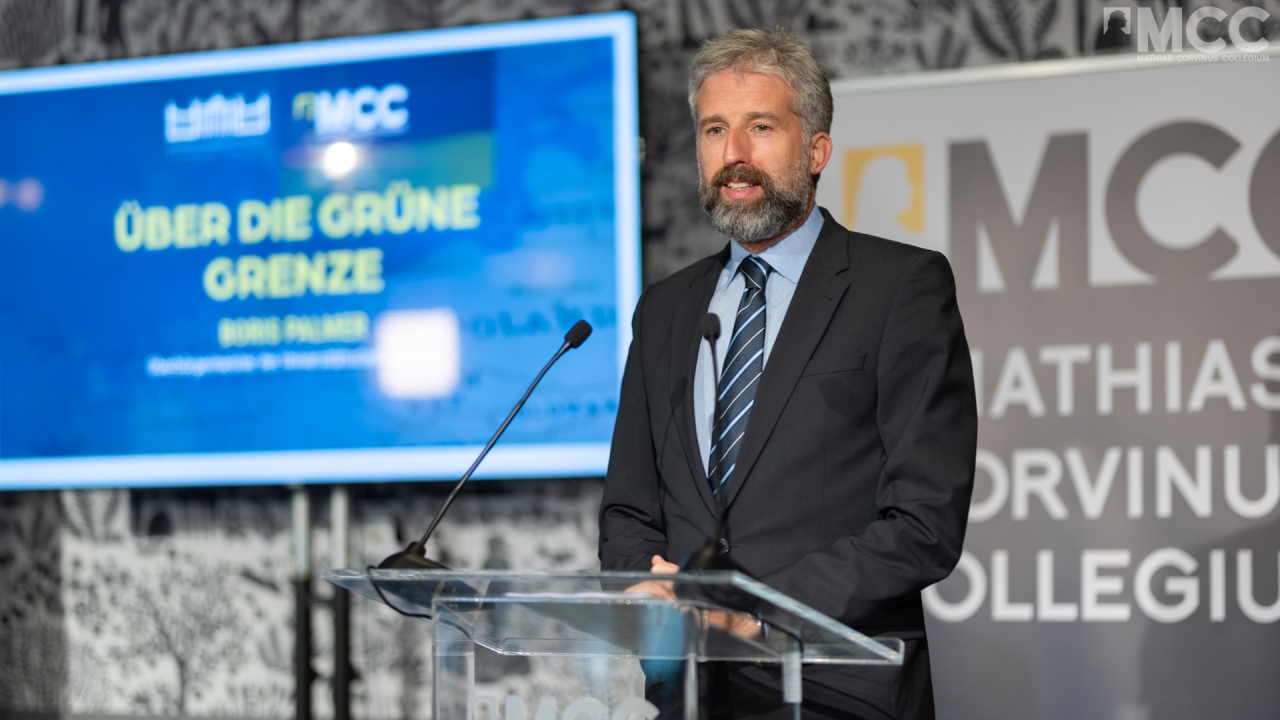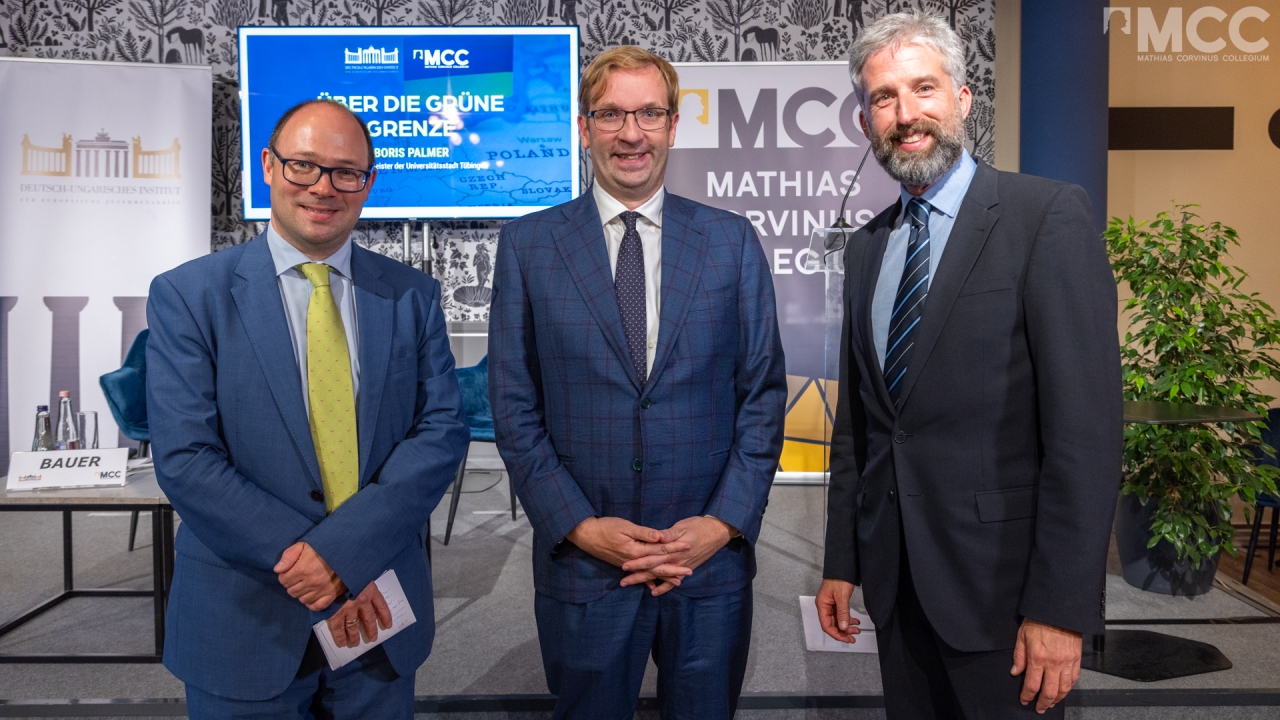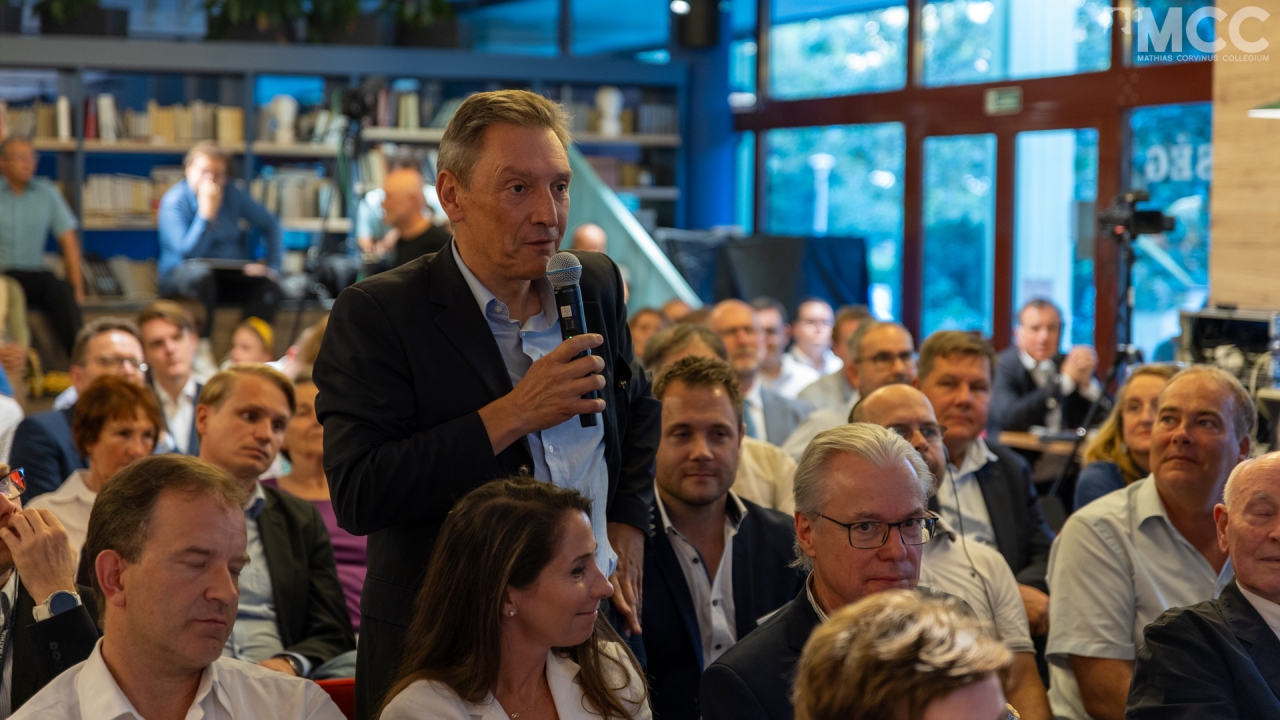Reading time: 4 minutes
Boris Palmer, mayor of the university city of Tübingen, is one of the most well-known, most successful, and most controversial mayors in Germany. On September 5th, At the invitation of MCC’s Hungarian-German Institute for European Cooperation's, he gave a presentation titled "Beyond the Green Border" where he spoke about his views on federal politics, his work in local government, and Hungarian-German relations. The event was packed, with more than 100 people attended the event, held in Mathias Corvinus Collegium's Scruton Café. Additionally, over 75 individuals watched the presentation and the panel discussion online.
“It is unusual for a scientific event to be preceded by such a heated debate as the one that preceded Boris Palmer's talk” said Dr Zoltán Szalai, Director General of MCC, in the event’s opening adress. According to Director Szalai, this media attention is due to the political style of Boris Palmer who has the ability not only to inspire and motivate people but also spark discussion. As such, MCC is the ideal venue because it provides a platform for objective and honest discussions and exchanges of ideas. "We are diverse, we are open, we are controversial and we are against prejudice and cancel culture."
Boris Palmer began his presentation by discussing the migration crisis of 2015 and highlighting the successful integration of a Syrian refugee who was elected mayor of a municipality in Baden-Württemberg. Considering this, he questioned whether the strict Hungarian migration policy has its drawbacks. He continued, arguing that rather than preaching absolutes from a lofty, moral pedestals, it is crucial to ask questions and engage in a genuine exchange of views given Germany and Hungary’s divergent approaches to migration policy. Despite our differences, he insisted, we must continue to exchange ideas, but dialogue also entails disagreeing when nonsense, such as conspiracy theories, are being spread. Overall, he advocated for an attitude in Germany, Hungary, and Europe that, in line with Enlightenment ideals, values the strength of arguments and encourages the challenging of one's own beliefs. In Europe, he pointed out, there is no need to dismiss a debate from the left or the right, and Europe cannot afford to exclude Hungary because the continent is on the defensive geopolitically, militarily, economically, and ideologically. He also acknowledged the vulnerability of smaller states like Hungary to the influence of more powerful states.
In this regard, Palmer emphasized the need for a more open discussion of the potential drawbacks of migration in Germany, "on this side of the green border." He claimed that while it is appropriate for Hungary to adopt a stance that does not uphold multicultural diversity as a guiding principle, greater openness on the subject would also aid Hungary in moving in the same direction as the rest of Europe.
The presentation was followed by a panel discussion moderated by Bence Bauer, Director of the German-Hungarian Institute for European Cooperation. Among other topics, Director Bauer asked the mayor about the management of the Corona crisis and the previously mentioned geopolitical situation in Europe. In his response, Palmer explained that in this tense global political situation, Germany cannot afford to alienate its few allies, including, no doubt, Hungary. "Germany has to fight for the Hungarians, and Hungary has to fight for the Germans", he said.
Following the formal part of the event, the audience also had a chance to ask the Mayor of Tübingen questions. A lively debate, not without some controversy, ensued, covering topics like the alleged pacifism of the Greens, the conflict in Ukraine, integration, and border policy.
During his three-day stay in Hungary, Boris Palmer met with several politicians, academics, and leaders involved in Hungarian-German relations. He met with Balázs Orbán, the Prime Minister's Political Director and Chairman of the Board of Trustees of MCC’s Foundation; Dr. Ágoston Mráz, Director of the Nézőpont Public Opinion Research Institute; Attila Steiner, State Secretary for Energy and Climate Policy at the Ministry of Energy; Dr. Arne Gobert, President of the Deutscher Wirtschaftsclub (DWC); Boris Kálnoky, Head of MCC’s Media School, Zsófia Nagy-Vargha, State Secretary for Youth at the Ministry of Culture and Innovation; Gergely Prőhle, former Ambassador of Hungary to Germany and Director of the Otto von Habsburg Foundation; Imre Ritter, Member of Parliament for the German minority in Hungary; Dr. Lóránt Keresztes László, member and former president of the LMP; Dr. András Schiffer, founder of LMP and Máté Litkei, director of the Climate Policy Institute. Palmer also met with Prof. Dr. Frank-Lothar Kroll and Prof. Dr. Oliver Lembcke, visiting fellows at the German-Hungarian Institute.
